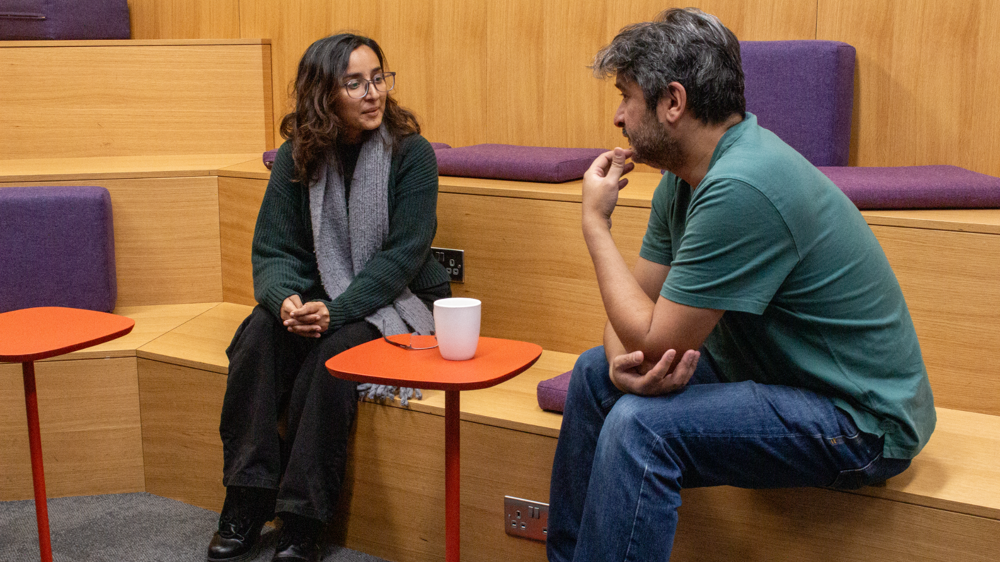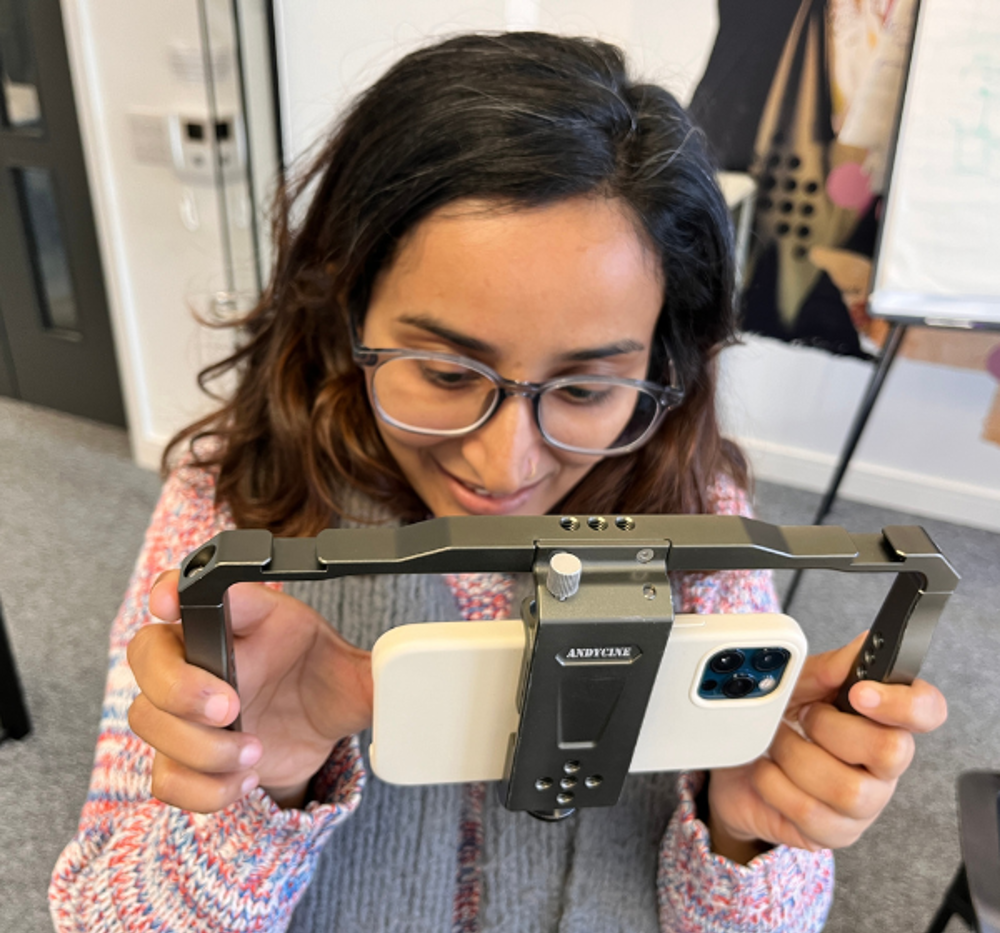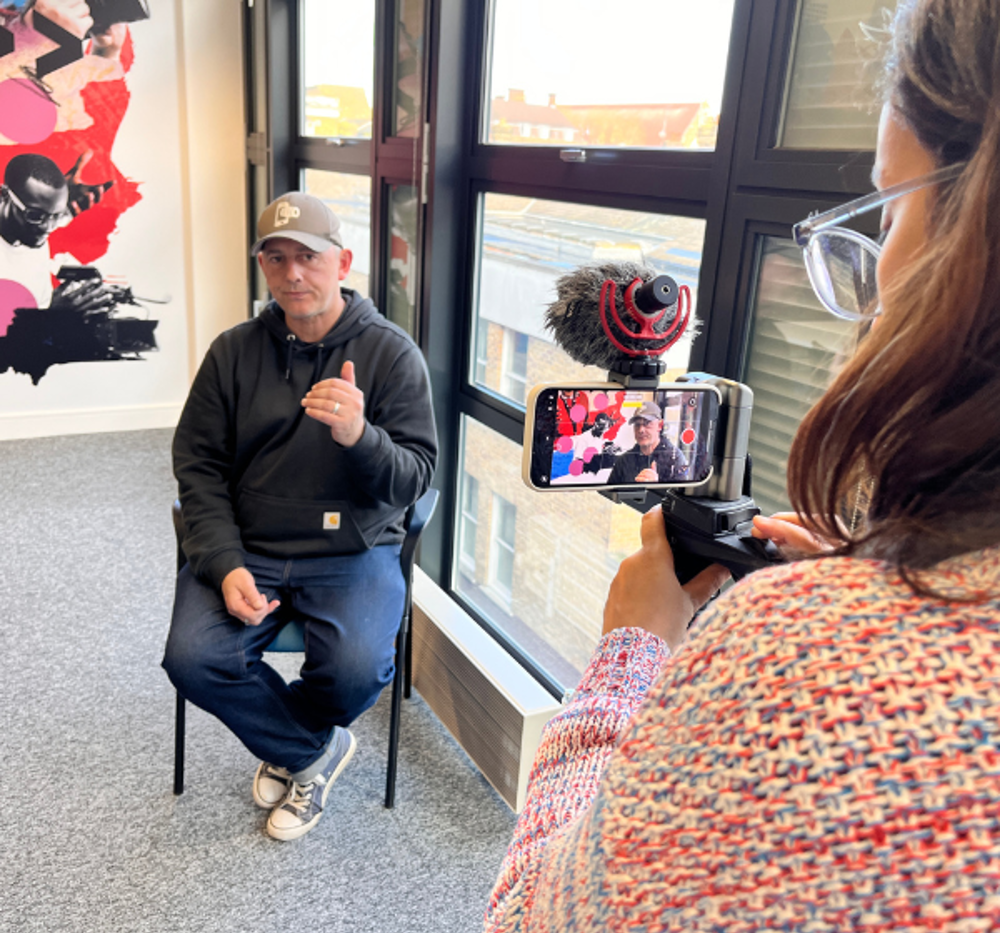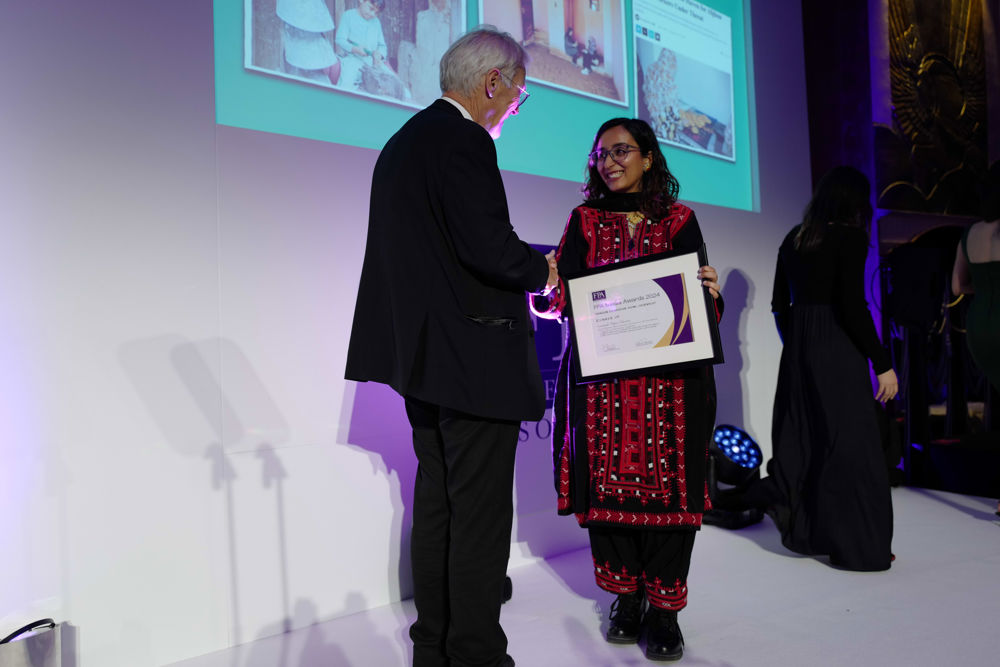Somaiyah Hafeez, one of this year’s finalists for Thomson’s Young Journalist of the Year Award, had a transformative visit to London. As the only finalist able to travel to Britain, she participated in a mobile journalism course, visited renowned newsrooms including the BBC and The Guardian, and attended the Foreign Press Association Media Awards, where she was recognised as one of the runners-up. Here, Somaiyah, who’s from Balochistan in Pakistan and currently studying for a masters in data journalism at Columbia Journalism School, reflects on her experience.
What was it like visiting leading UK newsrooms?
Going to all these newsrooms like the BBC, The Guardian, Financial Times, and Channel 4 was one of the most exciting parts of this trip because these are news outlets that every journalist dreams to work for. So, when you get the opportunity to go and meet the editors and form those connections and see the insides of a newsroom and how they work, it's like a dream come true. And especially for me, as a freelance journalist who has never really been a staffer for any news outlet, to know how a newsroom works made me wonder what it could it be like to work in one. It was a really exciting, once-in-a-lifetime opportunity for an early-career journalist.

Somaiyah with Channel 4 project manager Ziad Al-Hasso
Tell us about your experience with mobile journalism training.
In my career, I have been focussing on longform feature journalism, and I've never had experiences with audio or video journalism. I got to learn a lot about mobile journalism and about how you can shoot a film or shoot a report using just your mobile phone. I feel like I learned an incredible amount in a very short time. I didn't think that I would really love doing video journalism, but after the session, I came out with this kind of love for it. And I want to go out and address those skills that I learned.

Mobile Journalism workshop with Cassius Rayner

Why is international media coverage of Balochistan important?
I think that Balochistan as a region is very important to be covered in international media because that's the only way that important stories, like the political resistance movement that Baloch women are leading right now, is going to be written down in history. And the national media in Pakistan does not really pay that much attention to Balochistan because that's a part of the state's narrative in how it's dealing with the conflict in Balochistan, making it into an information blackhole where no news can come out from. Hence, it becomes very crucial that it's given coverage in the international media.
What inspired your focus on data journalism?
The idea of doing my master's in data journalism came from one of my submissions for the award, which was this data-driven story that I did for Kontinentalist on enforced disappearances in Balochistan. When that story came out, the way that it was received by people who were reading it made me realise that data journalism is indeed the future. Because the issue of enforced disappearances in Balochistan was something that I had covered previously as well in multimedia platforms in the form of photographs and interviews in a written article. But nobody had ever covered the story from a data aspect. And when that was done, the story was able to paint the picture of how grave an issue this is, in a sort of a way that present-day media requires, which is to have a lot of visualisations and a lot of data analysis so that it speaks even louder to the audience.

Somaiyah receives her runners-up certificate from Thomson's Chairman of the Board of Trustees, Lord Chandos.
What does being a finalist for this award mean to you?
Being a finalist for this award is a privilege. I'm really glad that the stories that resulted in my nomination for this award are stories that are very important, stories that I always wanted to tell as a journalist. And because of this award, and because I was selected as a finalist, these stories are once again being talked about and being shared. So that I feel like is the most important part about this entire experience, which I am so grateful for. Obviously coming to London and getting to meet all these editors, going to all these newsrooms has enhanced my confidence as a young journalist. I feel like it has given me a really great networking experience.
What advice would you give to young journalists?
One advice that I would give to young journalists is to never doubt themselves. Because I think, especially as a young journalist, when you're starting off, you constantly doubt yourself. So I would say ‘try not to do that,’ at least, because it's impossible not to. Also, put your work out there, especially if you are a freelance journalist or if you are very shy about your work, or if you’re constantly questioning whether you’re doing a good job or not. Just put your work out there, because if you do not, nobody's going to know the incredible job that you're doing. Find stories that you're passionate about and follow them. And just be fearless.


